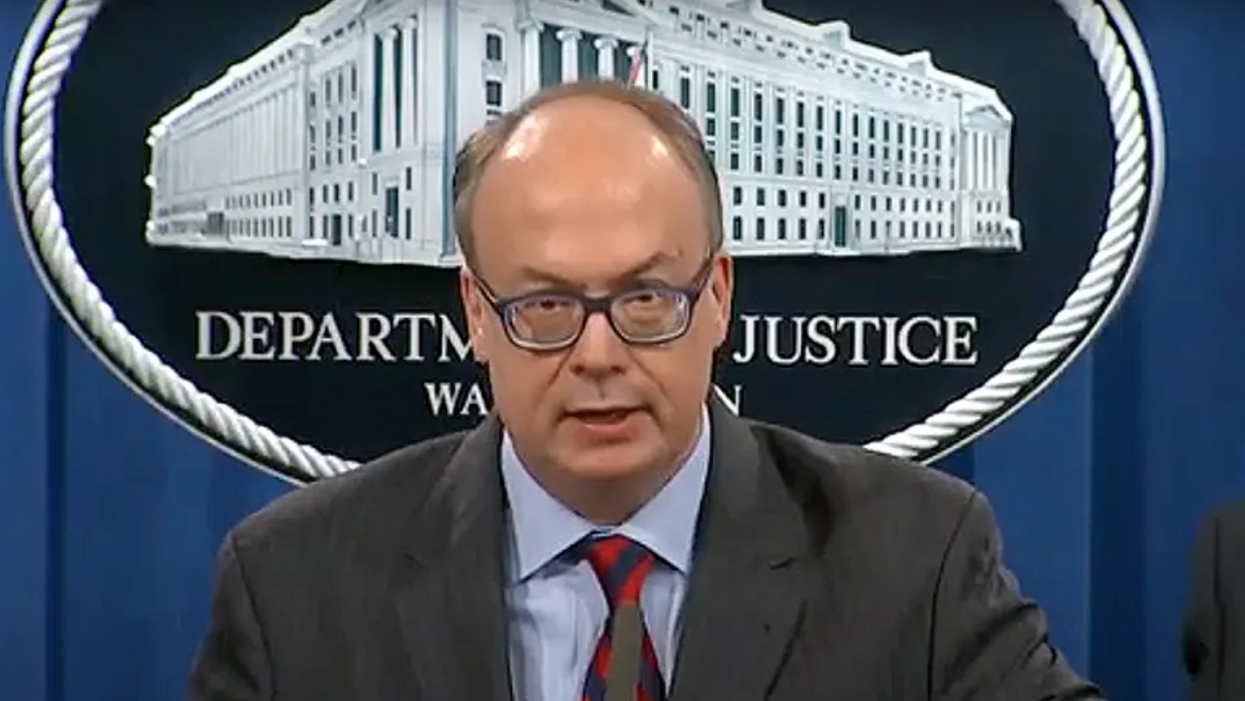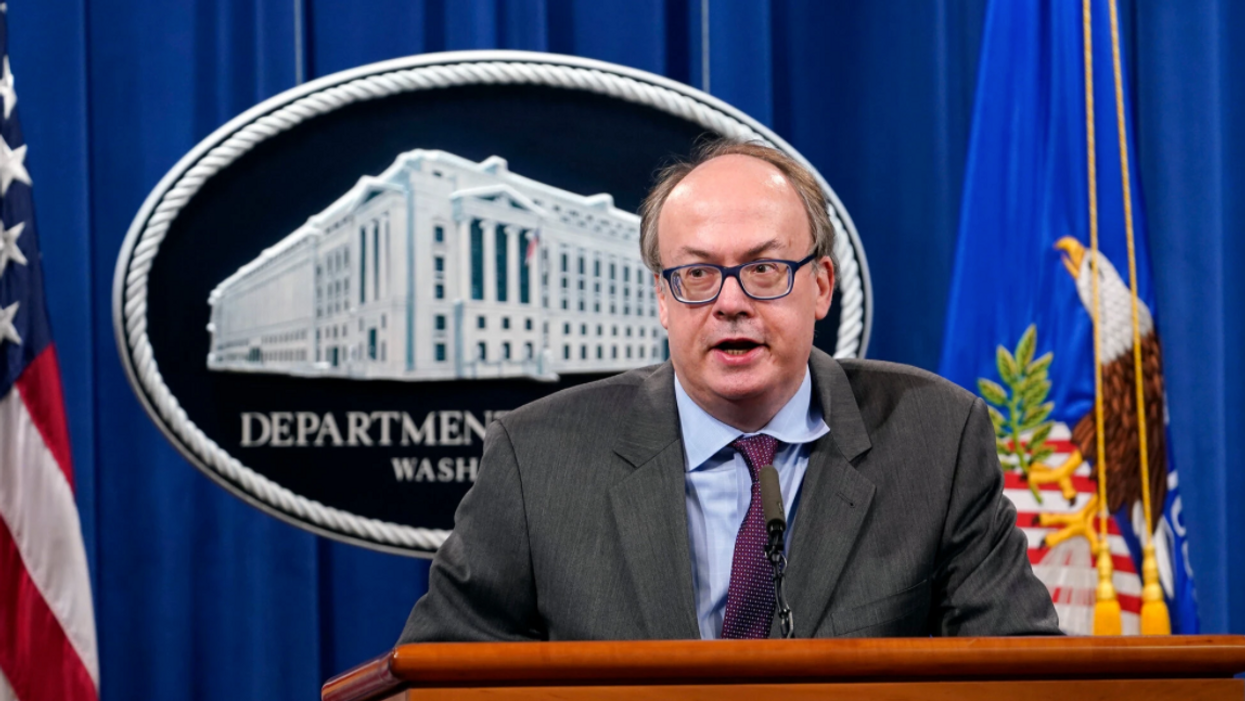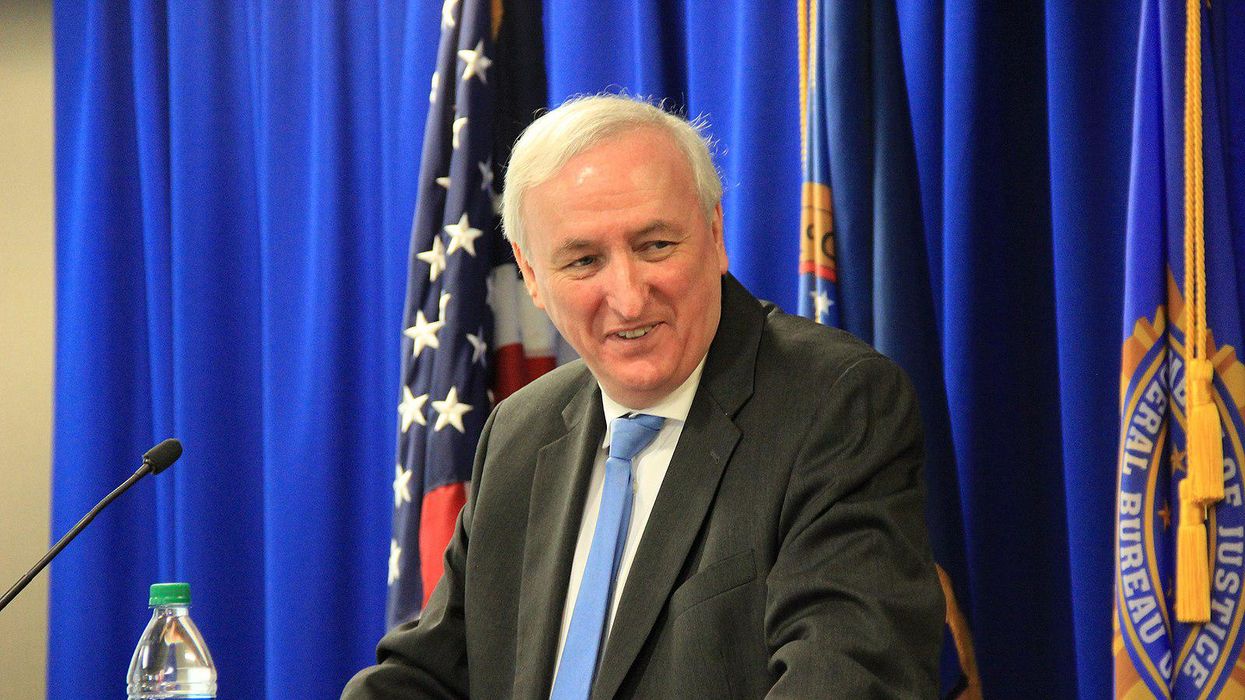Reprinted with permission from Daily Kos
The full scope of the Trump administration's efforts to nullify an American presidential election is just beginning to come into view. Trump and his top allies engaged in an orchestrated, three-pronged plan to use federal officials to cast illegitimate doubts on the integrity of the election, explicitly pressure state officials to "find" votes or otherwise alter vote totals, and counter the official congressional acknowledgement of the election's results with an organized mob assembled specifically to "march" to the Capitol and intimidate the lawmakers carrying out that constitutionally mandated process. It was an attempted coup by Trump and his deputies, one that Trump himself continued to press even after that coup had exploded into violence.
The New York Times reported that Trump's acting attorney general, Jeffrey Rosen, gave closed-door testimony to the Senate Judiciary Committee on Saturday. The subject of the testimony was the interactions between Rosen and Justice Department official Jeffrey Clark as Clark attempted, on Trump's behalf, to press the Justice Department into issuing false claims suggesting that they were investigating election "fraud" of the sort that Trump's propagandists were claiming as the reason for Trump's loss. It was untrue, and the top two Justice officials rejected Clark's repeated proposals.
Transparently, it was an attempt by Clark and other Trump allies to throw the nation into chaos by claiming the election was so flawed that its results must be overturned—a claim which Trump's hard-right team believed would force the assembling Congress to erase the election's counted votes and, somehow, reinstall Trump as quasilegal national leader.
All three elements of the plan came perilously close to succeeding. All three were thwarted only because individuals remained in place who believed the plan to be insanity, sedition, or both. It is the efforts by Trump-aligned officials within the federal government, using the tools granted to them by government, that elevate the events culminating in violence on January 6 from insurrection to attempted coup.
In a pivotal decision, Rosen rejected Clark's attempt, leading to yet another internal administration crisis as Trump mulled whether to fire him and install Clark in his position so that the plan could be carried out.
In a Sunday CNN appearance, Senate Judiciary Committee member Sen. Dick Durbin said Rosen had described Trump as being directly involved in Clark's actions. "It was real, very real, and it was very specific."
Significantly, the Times reports that Rosen scheduled his testimony "quickly" so as to allow them to go forward "before any players could ask the courts to block the proceedings." That may be a self-serving interpretation of events. As emptywheel notes, Clark's efforts to overturn the election and Trump's aborted move to fire Rosen and install Clark as acting attorney general was the subject of news reporting in January, even before Trump's second impeachment trial took place. The Senate Judiciary began their requests for documents pertaining to the plan near-immediately, and have been battling the Department of Justice for testimony ever since.
A half-year delay in gaining testimony about a "very real" and "very specific" attempt to overthrow the duly elected next administration by coup does not make it sound like anyone involved is attempting to provide evidence "quickly."
Most significantly of all, perhaps, is that the United States Senate could have investigated the Trump team's plot during the impeachment trial meant to gather evidence and come to judgment on Trump's behavior. For the second time, it did not do so. It avoided examining the evidence, rushing through the trial to again get to the inevitable close of having nearly all Republican lawmakers back Trump's actions, even after they had resulted in violence.
The job now falls to the House select committee investigating the January 6 insurrection: The moves that Clark, Meadows, and other Trump officials made to falsely discredit the election results were intended to provide the backing by which willing insurrectionists could justify their demands that the Constitution be tossed aside for the sake of Trump's reinstallation. The job also falls to federal investigators who now need to examine—swiftly—the criminality of the schemes.
It was not, however, a "Trump" coup. Donald Trump, a known liar and semi-delusional blowhard, had few government powers that would allow him to singlehandedly erase state election counts or make official his declarations that he had lost, after a disastrous single term, only through "fraud" concocted against him. It required the cooperation of top Republican allies, of Republican Party officials, of lawmakers, and others that would press the false claims and work both within and outside of government to give them false legitimacy.
It was a Republican coup, an act of sedition backed with specific acts from Mark Meadows, from Jeffrey Clark, from senators such as Josh Hawley, from state Republican officials who eagerly seized on the conspiracy claims specifically so that they could be used to overturn elections they had lost, and from everyday Republican supporters who decided that the zero-evidence nationalist propaganda they were swallowing up was justification enough to storm the U.S. Capitol by force in an overt attempt to erase a democratic election.
Here we sit, waiting with bated breath as evidence dribbles out describing the full scope of what the entire world saw in realtime, from last November to January: top Republican officials spreading knowingly false, propagandistic claims intended to undermine the integrity of our democratic elections so as to justify simply changing that election's results and declaring themselves the victors. It was a fascist act. It continues in the states, as state Republican lawmakers use the same brazenly false claims peddled by Clark to impose new hurdles to voting meant to keep at least some fraction of the Americans who voted against the party last time from being able to vote at all the next time.
A bit more urgency is required, here.












